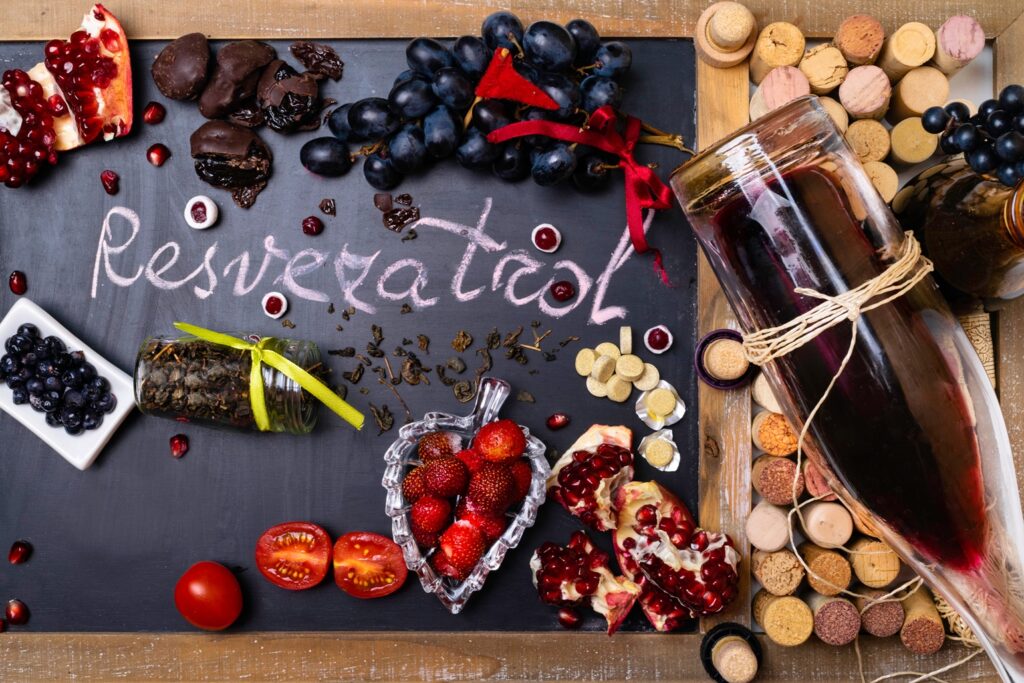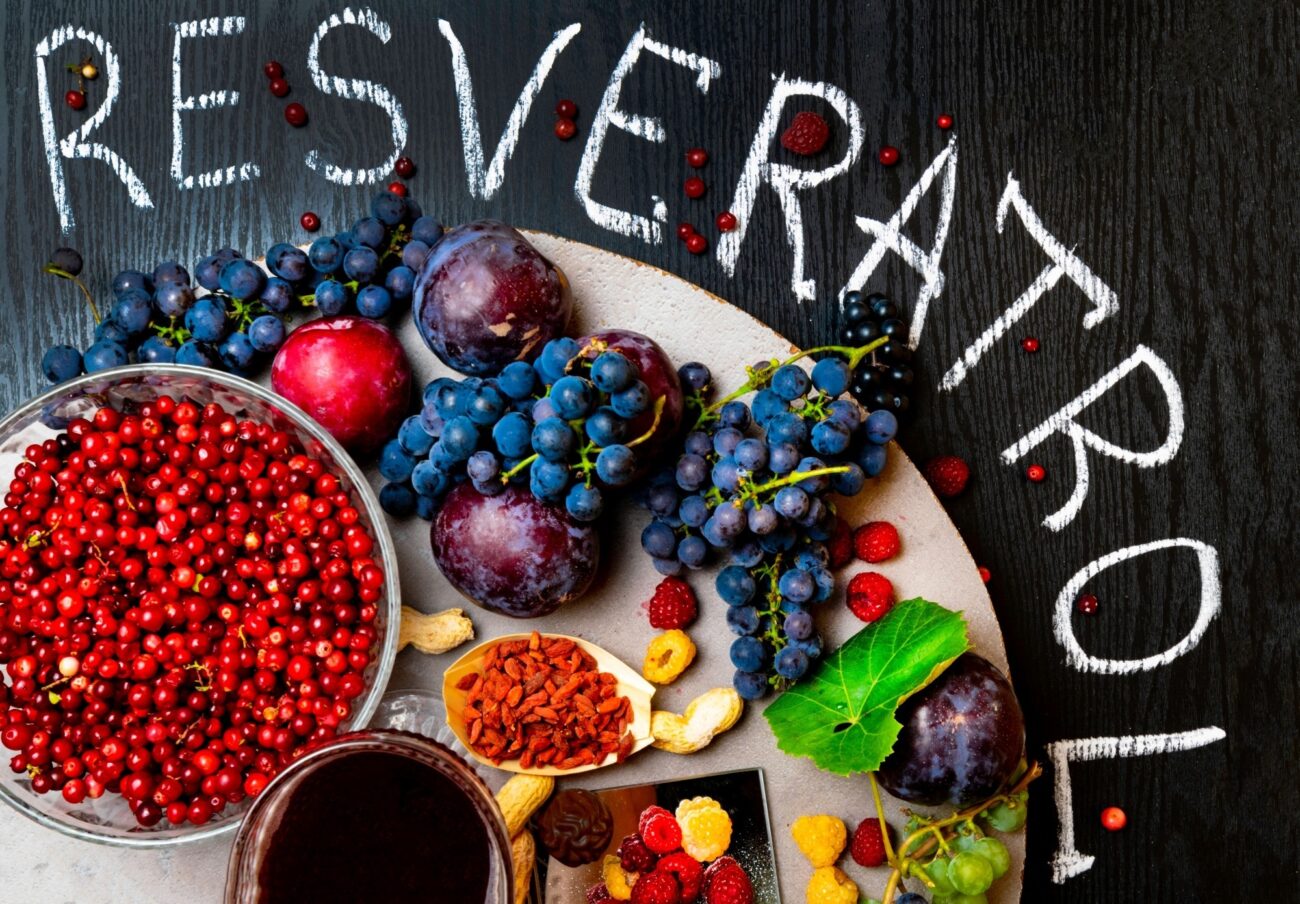Resveratrol has been making headlines for its potential to promote longevity, protect heart health, and fight aging. This powerful antioxidant, found naturally in certain plants, has captured the interest of scientists and health enthusiasts alike. But what exactly is resveratrol, and how can it benefit your health?
In this blog post, we’ll explore what resveratrol is, the foods that contain it, and the science-backed benefits that make it a must-have in your diet.
What is Resveratrol?
Resveratrol is a polyphenol, a type of naturally occurring compound found in plants that acts as an antioxidant. It is produced by plants as a defense mechanism against stress, injury, or fungal infections. Resveratrol is most commonly associated with red wine, but it’s also found in a variety of other foods, including grapes, berries, and peanuts.
Research on resveratrol has shown that it has anti-inflammatory, antioxidant, and anti-aging properties, making it a promising compound for supporting overall health and preventing chronic diseases.
Foods Rich in Resveratrol
If you’re looking to boost your resveratrol intake, here are some of the best food sources:
- Red Grapes and Red Wine
Red grapes are one of the richest sources of resveratrol, particularly in their skins. Red wine, made from fermented red grapes, also contains resveratrol, though in smaller amounts. Moderation is key when consuming alcohol for health benefits. - Blueberries and Cranberries
These berries are packed with antioxidants, including resveratrol. Add them to your breakfast smoothie or enjoy them as a snack. - Dark Chocolate and Cocoa
Dark chocolate and cocoa powder contain resveratrol, along with other heart-healthy flavonoids. Opt for dark chocolate with at least 70% cocoa content for the most benefits. - Peanuts and Pistachios
Peanuts and pistachios are good sources of resveratrol. Enjoy them as a snack or add them to salads and desserts. - Japanese Knotweed
This plant is one of the richest sources of resveratrol and is often used in supplements. It’s not commonly consumed as food but is available in extract form. - Mulberries
These sweet, tangy berries are another excellent source of resveratrol. Enjoy them fresh, dried, or in jams.
Key Benefits of Resveratrol
- Supports Heart Health
Resveratrol has been shown to improve heart health by reducing inflammation, lowering LDL (bad) cholesterol, and preventing blood clots. It also helps relax blood vessels, improving blood flow and reducing blood pressure. - Promotes Longevity
Resveratrol activates sirtuins, a group of proteins associated with longevity and cellular repair. This has led to its reputation as an anti-aging compound that may help extend lifespan. - Protects Brain Health
Resveratrol’s antioxidant properties help protect brain cells from oxidative stress and inflammation, which are linked to neurodegenerative diseases like Alzheimer’s and Parkinson’s. It may also improve memory and cognitive function. - Reduces Inflammation
Chronic inflammation is a root cause of many diseases, including arthritis, diabetes, and heart disease. Resveratrol’s anti-inflammatory properties help reduce inflammation and protect against these conditions. - Supports Skin Health
Resveratrol helps protect the skin from UV damage and oxidative stress, reducing signs of aging like wrinkles and fine lines. It’s a popular ingredient in skincare products for its anti-aging benefits. - May Aid in Weight Management
Some studies suggest that resveratrol can help regulate metabolism and reduce fat storage, making it a potential ally in weight management. - Supports Blood Sugar Control
Resveratrol may improve insulin sensitivity and help regulate blood sugar levels, making it beneficial for individuals with type 2 diabetes or those at risk of developing the condition. - Fights Cancer
Preliminary research suggests that resveratrol may inhibit the growth of cancer cells and reduce the spread of tumors. While more studies are needed, its antioxidant and anti-inflammatory properties show promise in cancer prevention.
How to Incorporate Resveratrol into Your Diet
Adding resveratrol-rich foods to your diet is easy and delicious. Here are some simple ideas:
- Enjoy a glass of red wine (in moderation) with dinner.
- Snack on a handful of peanuts, pistachios, or dark chocolate.
- Add blueberries, cranberries, or mulberries to your morning oatmeal or yogurt.
- Use cocoa powder in smoothies, baked goods, or hot cocoa.
For those who struggle to get enough resveratrol from food, supplements are available. However, it’s always best to consult a healthcare professional before starting any new supplement.
Precautions and Considerations
While resveratrol is generally safe when consumed through food, there are a few things to keep in mind:
- Supplements: High doses of resveratrol supplements may interact with medications or cause side effects like digestive discomfort. Always follow the recommended dosage and consult a doctor if you’re unsure.
- Alcohol: If consuming red wine for resveratrol, stick to moderate amounts (1 glass per day for women, 2 for men). Excessive alcohol consumption can negate any health benefits.
- Pregnancy and Breastfeeding: The safety of resveratrol supplements during pregnancy and breastfeeding has not been established. Stick to food sources if you’re pregnant or nursing.

Resveratrol is a remarkable compound with a wide range of health benefits, from protecting your heart and brain to promoting youthful skin and longevity. By incorporating resveratrol-rich foods like red grapes, berries, and dark chocolate into your diet, you can harness the power of this antioxidant to support your overall health and well-being.
Whether you’re sipping on a glass of red wine, enjoying a handful of berries, or indulging in a piece of dark chocolate, you’re not just treating your taste buds—you’re giving your body a boost of resveratrol’s incredible benefits. Cheers to good health!
Have you tried adding resveratrol-rich foods to your diet?
Share your favorite ways to enjoy them in the comments below—we’d love to hear from you!
Disclaimer: This blog post is for informational purposes only and does not constitute medical advice. Always consult a healthcare professional before making changes to your diet or supplement routine.

